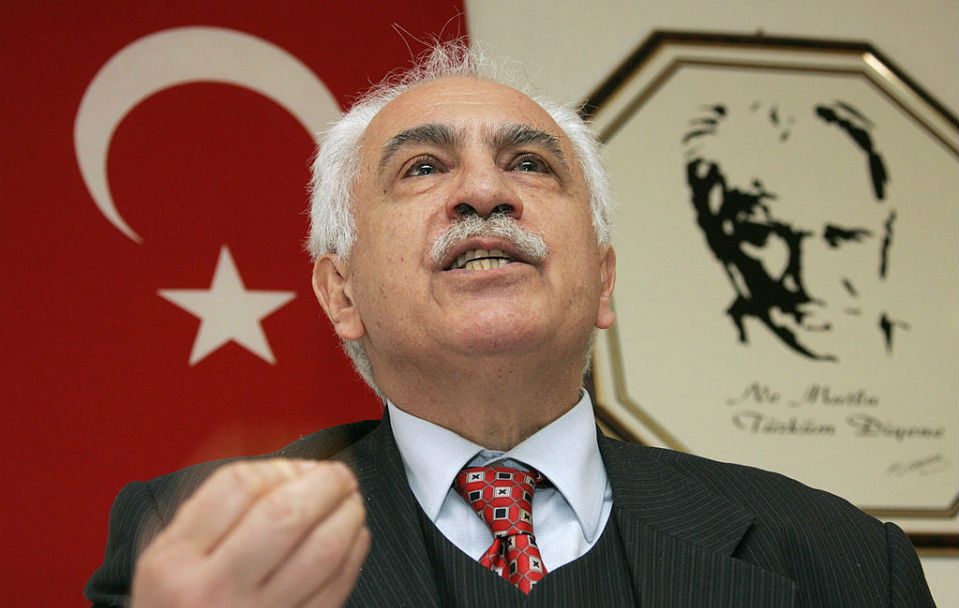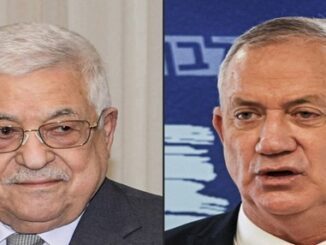
President Recep Tayyip Erdogan has recently patched up ties with Russia and Israel. Are a couple of nationalist politicians laying the groundwork for a deal with Syria’s strongman?
In the past month, Turkey has worked to turn two old rivals into new friends. On June 27, Turkish officials announced a deal normalizing relations with Israel after a six-year rift in the wake of the deadly Mavi Marmara incident. That day, Turkish President Recep Tayyip Erdogan also expressed regret to Russia over the downing of a Russian warplane in November 2015, which paved the way for the two countries to patch up their relationship, said Foreign Policy in a report on Tuesday.
The fate of Syria looms large over Turkey’s foreign-policy “reset.”
Could Ankara also extend an olive branch to its greatest enemy: Syrian President Bashar al-Assad’s regime?
The Homeland Party (Vatan Partisi), a nationalist movement with an anti-Western and anti-American platform, is chaired by Dogu Perincek, a well-known socialist politician in Turkey; its vice chair is Lt. Gen. Ismail Hakki Pekin, the former head of the Turkish Armed Forces’ Military Intelligence. Perincek and Pekin told Foreign Policy that they had meetings with members of the governments of Russia, China, Iran, and Syria during the last year and conveyed messages they received during these visits to high-ranking Turkish military and Foreign Ministry officials.
Perincek and Pekin — a socialist leader and an army general, respectively — may seem like something of an odd couple. Their political collaboration started in prison, as both men were detained in 2011 in relation to the Ergenekon case, which alleged that a network belonging to the “deep state” was plotting a military coup against the elected government. Both men share a staunch Kemalist political outlook based on a very strict adherence to secularism and Turkish nationalism, as well as an “anti-imperialist” outlook that makes them wary of American and Western influence over Turkish politics. In 2016, the Supreme Court of Appeals overturned convictions in the Ergenekon trials, ruling that the “Ergenekon terror organization” did not exist at all and that evidence had been collected illegally.
Perincek and Pekin first met Assad in Damascus in February 2015. During this meeting, Perincek said, both parties agreed on “the need of Turkey and Syria to fight separatist and fanatical terror groups together.”
Pekin and other retired senior Turkish officers who are also members of the Homeland Party, Rear Adm. Soner Polat and Maj. Gen. Beyazit Karatas, subsequently visited Damascus three times. Pekin said that during these visits — which took place in January, April, and May — the delegation met with several of the most influential security chiefs, diplomats, and political officials in the Syrian government. They included the head of the Syrian General Security Directorate, Mohammed Dib Zaitoun; Ali Mamlouk, the head of the National Security Bureau; Foreign Minister Walid Muallem; Deputy Foreign Minister Faisal Mekdad; and Abdullah al-Ahmar, assistant secretary-general of the Syrian Baath Party.
The main theme of these meetings, according to Pekin, was “[h]ow to prepare the ground for Turkey and Syria to resume diplomatic relations and political cooperation.”
According to the retired Turkish army general, his meeting with Mamlouk, Syria’s powerful security chief, reached directly to the top of the state.
“Mamlouk would often ask permission to go to the next room to talk to Assad directly on phone” Pekin said.Pekin said that he debriefed senior Foreign Ministry and military officials after each visit, and that he has sensed a gradual change in Turkish officials’ attitudes over the past 18 months. “In January 2015, Turkey was not ready to change its policy,” he said. “However, during my last visit I observed that they [Foreign Ministry officials] were more open and flexible about that issue.”
A senior Turkish Foreign Ministry official confirmed that he met Pekin, yet vehemently denied that Turkey was negotiating with the Assad regime.
“Yes, we listened to Pekin,” the official said. “We listen to millions of people, even truck drivers, who say they possess sensitive information about conflict zones. But there was no exchange in these meetings whatsoever.”
But Pekin and Perincek believe that the growing power of the Syrian Kurdish Democratic Union Party (PYD), which has carved out a large autonomous area in northern Syria along the Turkish border, could persuade Turkish officials to come around to their argument. The PYD is closely affiliated with the Turkish Kurdistan Workers’ Party (PKK), which has waged a decades-long insurgency against the Turkish state and is considered a terrorist organization by the United States and Ankara.
The two leaders of the Homeland Party argue that Turkey and the Assad regime are bound by this common enemy. “Bashar Assad told us that the PYD is a traitor organization, a separatist group. He said he will not tolerate such a separatist group in Syria, and he had no doubt that the PKK and PYD are the pawns of the U.S.,” Perincek said. “I heard him say this with my own ears.”
Pekin and Perincek said that the PYD is receiving important support from the United States, and made the case that the only way to counteract this is to build ties with other regional countries — including Assad’s regime. “Turkey is fighting against the PKK at home, yet this is not enough,” he said. “Turkey has to cut the foreign support to the PYD and fight against them to defeat the PKK. To cut the foreign support to the PKK, Turkey has to collaborate with Syria, Iraq, Iran, [and] Russia.”
At least some Turkish government officials might be sympathetic to that line of argument
“Assad is ultimately a killer. He tortures his own people. But he doesn’t support Kurdish autonomy. We may dislike one another, but we pursue similar politics with that regard,” an unnamed senior official with the Justice and Development Party (AKP) told Reuters on June 17.
However, several senior Turkish officials rejected the claim that Turkey is changing its stance against the Assad regime. One official told Foreign Policythat the idea of Turkey collaborating with the Assad regime against the PYD was “ludicrous.” The official asked rhetorically:
“Assad cannot protect his own neighborhood — how can he help us fight the PYD, which he empowered against Turkey and the Syrian opposition?”But the Syria issue isn’t the first time Perincek and Pekin claim to have delved into diplomacy — they say they also played a role during the rapprochement between Turkey and Russia.
“A group of businessmen close to Erdogan approached us to improve ties with Russia,” said Pekin, who visited Russia in December immediately after the downing of the Russian warplane. Pekin’s group introduced the businessmen to Alexandre Dugin, an ultra-nationalist Russian philosopher close to the Kremlin, who explained that the Russians expected some gesture that would amount to an apology. Perincek claimed that Alparslan Celik, the Turkish citizen who Russia alleged killed the pilot of the downed jet, was arrested immediately after this meeting. “We made a significant contribution to this [reconciliation] process and both parties, Turkey and Russia, wanted us to be a part of it.”
Presidential sources said they have no information concerning such a meeting
Asked whether the Homeland Party acts as an interlocutor between Turkey and Syria, Perincek said, “We don’t take directions from anyone.” Pekin and Perincek refrained from using the term “mediator” to define their work — instead, Pekin said, “We lay the groundwork.”
“There are a lot of people within the AKP, especially around Recep Tayyip Erdogan, who see that being enemies with Syria and Russia is not sustainable,” Perincek said. “In fact, this is why the new cabinet was formed.”
Indeed, Turkey’s foreign-policy shifts toward Russia and Israel corresponded with a political shift in Ankara. After long-standing disagreements with Erdogan, Prime Minister Ahmet Davutoglu resigned on May 4. He was replaced by the Binali Yildirim, who signaled that he would not pursue the policies of his predecessor.
“We will continue to improve ties with our neighbors,” Yildirim told AKP’s Politics Academy on July 11. “There is no reason for us to fight with Iraq, Syria, or Egypt, but we need to take our cooperation with them further.”
The power balance among different security actors in Turkey has also been changing. The Wall Street Journal reported that the Turkish Army is regaining leverage over politics, as the Kurdish issue and regional security threats escalate. For decades, the Turkish Armed Forces exerted direct control over democratically elected governments and staged four coups to protect its political privilege. The military lost influence under the AKP government — but the ugly divorce between the AKP and the Gulen Movement, which split in late 2013, has empowered the old establishment. While the Gulenists used to have a powerful influence in state institutions, he said, “these people are being replaced with those who are loyal to the republic, nation, and against religious brotherhoods.”
A senior AKP official said that there had been “some unfortunate incidents in the past” between the government and the army, but that the relationship was now healthy. “[C]oordination between the army and government has been intensified during the last several years,” the official said.
The Turkish Army is known to be wary of the country’s policy against Assad. A senior government official, who used to be among the makers of Turkey’s Syria policy, said that the government wanted to establish a buffer zone in northern Syria, but that the Turkish Army resisted this decision as early as 2011.“From the very beginning the Turkish Army was in favor of keeping friendships, good relations, and cooperation with Syria, Iraq, Iran, and Russia,” Perincek said.
Presidential and Foreign Ministry sources strongly deny rumors that Turkey is shifting its Syria policy, saying the removal of the Assad regime remains a priority for Turkey. Other observers, however, have noticed a change in emphasis in Ankara’s stance toward Syria: Abdulkadir Selvi, a veteran journalist with the Turkish daily Hurriyet, makes the case that Turkey is transitioning from an “era of idealism,” embodied by Davutoglu’s term, to what government supporters will promote as an “era of realism.” In this new era, Selvi argues, the Turkish government will continue criticizing the Syrian regime — but also expend less effort to topple Assad and cooperate with actors who want to prevent the establishment of a Kurdish corridor in northern Syria.
As Selvi argues: “The territorial integrity of Syria is now more important for the Turkish state than the fate of the Assad regime.”



